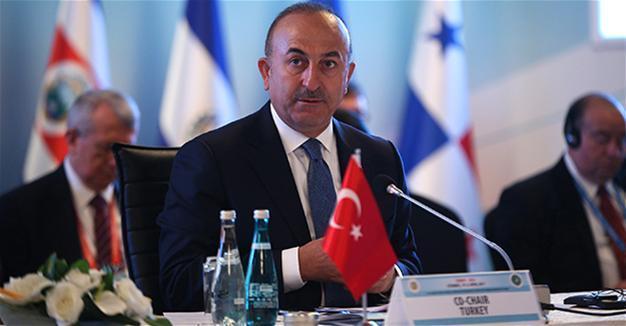PACE to discuss degrading Turkey’s status to monitoring
Sevil Erkuş - ANKARA

AA photo
The Parliamentary Assembly of the Council of Europe (PACE) is scheduled to meet next week to discuss whether to degrade Turkey’s status and reopen a monitoring process against the country in response to the authoritarian slide in the country.
FM Mevlüt Çavuşoğlu has been lobbying PACE, which he once chaired in 2010, not to relegate Turkey.
The picture is gloomy for Turkey since a report drafted by the co-rapporteurs of the monitoring committee recommended that the assembly decide “to re-open the monitoring procedure in respect of Turkey until its concerns are addressed in a satisfactory manner.”
If the assembly degrades Turkey’s status, it could provide legal ground for the European Union Council to open a debate on the moribund membership talks with Turkey.
On April 24, PACE’s bureau will decide whether the assembly will debate “The functioning of democratic institutions in Turkey” over a report drafted by co-rapporteurs Ingebjørg Godskesen from the European Conservatives Group and Marianne Mikko from the Socialist Group.
The Christian Democrats in the assembly, however, have reportedly launched a campaign to postpone debate on Turkey until after the German elections in September.
‘Serious deterioration in functioning of democratic institutions’
The draft report leveled severe criticism at the actions undertaken during the state of emergency in Turkey and expressed deep concern about the scale and extent of the purges in the public administration, the judiciary and many other public institutions. The draft report underlined a “serious deterioration of the functioning of democratic institutions in the country.”
“Measures have gone far beyond what is necessary and proportionate. The authorities have been ruling through decree-laws going far beyond what emergency situations require and overstepping the parliament’s legislative competence. The assembly is also concerned that most of the decree-laws have so far not been approved (as required by the constitution), or their implementation monitored by the parliament, which the assembly considers to be a serious democratic deficiency,” read the document.
The draft report recalled concerns in an earlier assembly resolution concluded in June 2016, prior to the July 15 failed coup, that “the developments pertaining to freedom of the media and of expression, erosion of the rule of law and the alleged human rights violations in relation to the anti-terrorism security operations in southeastern Turkey constituted a threat to the functioning of democratic institutions and the country’s commitments to its obligations towards the Council of Europe.”
The assembly “regrets that none of the issues identified have been addressed. The assembly has, on the contrary, noted that the harmful developments observed in June 2016 accelerated and worsened after the failed coup,” said the report.
The draft report said the lifting of immunity for 154 lawmakers in Turkish parliament had seriously undermined the democratic functioning and position of the parliament.
Turkey proposes mechanism to restore problematic areas
Talip Küçükcan, the chairman of the Turkish delegation to PACE, told the Hürriyet Daily News that they were continuing to work to relate the “extraordinary circumstances” that Turkey has been facing since the June 7 elections in 2015 but that there was a negative atmosphere in the assembly.
Küçükcan said Ankara wants to maintain dialogue with PACE and has proposed that Ankara and the assembly jointly draw a road map to address problematic issues regarding Turkey and set a timetable for their resolution. Ankara invited the PACE presidency to Ankara in order to discuss the criticisms and convey Turkey’s opinion in first hand, but the European body has not replied yet, he said.
“We are telling the PACE members what is going on in Turkey. After June 7, Turkey encountered various problems including the July 15 coup attempt and we had to take a number of measures. We are talking about a country which has faced existential threats. The state of emergency is legitimate and its practices are in line with CoE norms. We are in favor of continuing relationship with the assembly. But there are a number of PACE deputies who try to act on their own terms and they affect some positions. There is a window for optimism, but you can see the language in which debates on Turkey are conducted in the West,” he stated.
“We proposed determining problematic issues one by one and setting a schedule for their solution if necessary. Unfortunately, our partners do not approve of this,” he added.
Turkey was under PACE monitoring procedures from 1996 to 2004, after which the monitoring ended amid government reforms in the early 2000s.
The assembly initiated action to discuss Turkey’s status in January, but a decree law issued by the Turkish government to restore fundamental rights under the under state of emergency convinced PACE to hold off on the debate until after the monitoring commission’s report is finalized.
